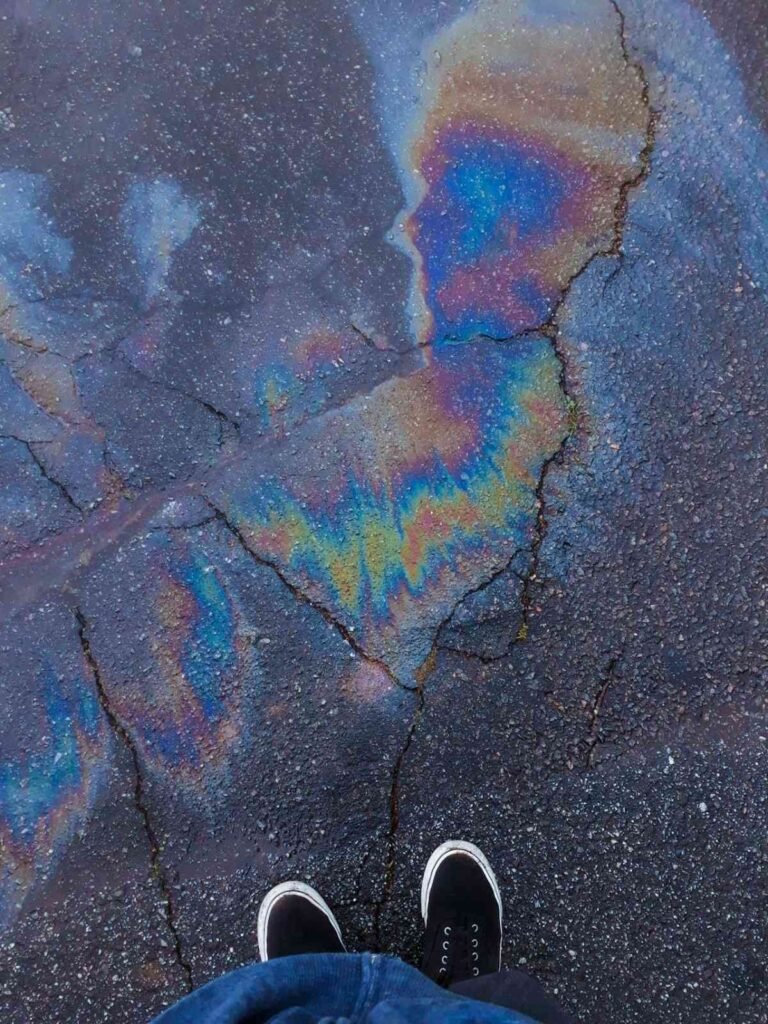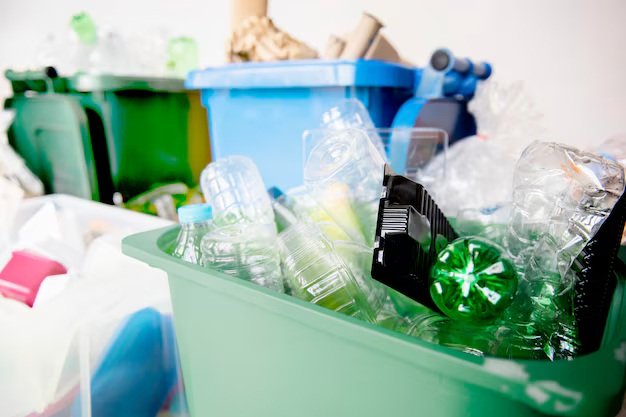How to Dispose of Gasoline Properly and Environmentally
If you’ve ever found an old red can in the back of your shed, you know the uneasy feeling that comes with it: Is this fuel still safe? Can I pour it into the car? What if I just throw it away? As ordinary as gasoline seems, the way we store and dispose of it can decide whether our homes stay safe and our communities stay healthy. Gasoline vapours are heavier than air, travel along floors and drains, and ignite easily, often far from where the liquid sits. Fire investigators have seen the same pattern again and again after preventable explosions: a small mistake with fuel becomes a life‑altering event in seconds.
The environmental stakes are just as real. Disposing of gasoline in sinks, sewers, or trash introduces toxins into wastewater systems and exposes sanitation workers to danger. According to the U.S. Environmental Protection Agency, improper disposal of household hazardous waste—including flammables like gasoline—can pollute soil and water and injure collection crews; the agency’s 2025 update emphasises that pouring these materials down drains, onto the ground, or into storm sewers is unsafe and unacceptable.
Public safety data tell the same story from a different angle: home fire losses remain severe, and flammable vapours are a recurring factor. The National Fire Protection Association’s latest national overview shows hundreds of thousands of structure fires annually, with thousands of civilian deaths and injuries. While not everyone is involved in gasoline, flammables are a persistent ignition source that magnifies risk.
Regulators have responded. After years of research and incidents, the U.S. Consumer Product Safety Commission required flame mitigation devices (FMDs) on portable fuel containers in 2023 under the Portable Fuel Container Safety Act. These built‑in safety features impede flame from travelling back into a can—a change driven by burn research and consensus standards.
For households, the rule of thumb is simple: gasoline is household hazardous waste. Many states make it explicitly illegal to discard it in the trash or dump it; California’s Department of Toxic Substances Control, for example, directs residents to bring gasoline to a household hazardous waste facility rather than discard it in the solid‑waste stream.

What safe disposal looks like, step by step
Start with recognition: that old can of fuel is not regular household rubbish, and your sink or the gutter is not a disposal route. The safest, most universally accepted path for getting rid of gasoline is to take it to an authorised household hazardous waste (HHW) facility or to a scheduled community drop‑off event. The EPA’s household hazardous waste guidance explicitly frames gasoline as a product that requires “special care” at the end of life; local programs are set up for exactly this job.
Because HHW is managed locally, call or check your municipality’s website to confirm drop‑off hours and limits. Cities and counties often list specific rules. King County, Washington, for instance, accepts fuels at HHW sites but caps each container at five gallons and limits households to 25 gallons per trip; containers need to be labelled and approved for fuel.
If you’re in New York City, the Department of Sanitation runs seasonal SAFE Events—residential‑only collection days for solvents and flammables that require proof of residency. (According to NYC Department of Sanitation, 2016 brochure; NYC.gov listing current as of 2025.)
Some jurisdictions impose daily weight or volume limits. In Lawrence, Kansas, the city HHW facility notes a typical household drop‑off limit of around 75 pounds per day and asks residents to package and label materials for safe transport, practical constraints that keep both staff and visitors safe.
Now, what should you do with the fuel before you go? Keep it in an approved, intact container with a tight cap—ideally the original can or a modern container with an FMD—to reduce vapour release. Do not mix the gasoline with anything else, including water, paint, or other chemicals; mixtures complicate safe handling at the HHW site. Carry the can upright in your vehicle’s trunk or truck bed rather than the passenger compartment, and avoid smoking or any ignition sources during transport. These common‑sense precautions track with the safety considerations embedded in federal workplace standards for flammables and the design intent behind container regulations..
What about “using up” old gasoline instead of disposing of it? Advice on that point varies by manufacturer and fuel formulation, and there’s no universal rule that guarantees success. Engine makers commonly warn that pump gasoline can begin to degrade surprisingly fast—sometimes within 30–60 days—especially when ethanol is present, which raises the risks of gum formation and poor combustion. That’s why small engine manufacturers and motoring organisations advise using fresh fuel or adding stabiliser if you plan to store gasoline for months. If your fuel is clearly stale, phase‑separated, or contaminated, the safer route is disposal at HHW rather than trying to “burn through” the problem in your equipment. (According to Briggs & Stratton, 2025).
Finally, do not pour gasoline into drains, onto soil, or into trash, and do not attempt to evaporate it intentionally. Besides the legal and environmental implications, the fire risk from vapours finding a pilot light, water‑heater flame, or static spark is real. EPA’s 2025 guidance on HHW and multiple state/local programs warn plainly against these practices because the consequences can be severe.
Real cases, expert advice, and what the data shows
When gasoline is mishandled, the “worst case” isn’t theoretical—it’s been documented in towns large and small. According to FOX6 Milwaukee, 2017, in Racine, Wisconsin, on October 14, 2017, a gasoline spill inside a home led to an explosion and fire; neighbours pulled four people from the house. Fire officials said the spilt fuel was to blame.
KUTV reported that a year later, in South Ogden, Utah, a renter used gasoline to clean a basement. Deputy Chief Rick Rasmussen’s explanation to local media captured the physics in plain language: vapour from the gas drifted to the water heater and ignited, blowing out walls and condemning the home. “Vapour from the gas hit the water heater and caused an explosion,” he said.
Improper disposal into sewers, unfortunately, shows up in the incident record, too. According to Deseret News, in Sandy, Utah, a careless gasoline dump into a drain triggered two house fires, three sewer‑line explosions, and neighbourhood evacuations—a chain reaction the local fire chief called exactly what it was: avoidable..
Similar sewer‑related gasoline incidents, decades apart, were reported by the Los Angeles Times—one in the San Fernando Valley in 1987 and another in San Diego in 2011—forcing evacuations and hazardous‑materials responses after crews detected explosive vapour levels beneath manhole covers. The lesson is clear: gasoline poured “out of sight” doesn’t disappear; it spreads, turns into vapour, and can ignite somewhere else.
These aren’t isolated anecdotes. National research has catalogued how flammable gases and liquids play out in homes. NFPA’s statistical reports show flammable gas involvement in a slice of home structure fires; while those analyses focus often on natural gas and LP-gas, the underlying lesson—how vapours migrate and ignite—is identical for gasoline in confined spaces with pilots, burners, or electrical sparks.
We also have real product‑safety progress. In January 2023, the CPSC finalised requirements for flame mitigation devices in portable fuel containers, formalising what many reputable brands had already adopted. The new mandates were driven in part by research demonstrating that flame arrestors can stop an external ignition from “flashback” into a can, a small component with big consequences.
Health agencies remind us that the hazard isn’t just fire. Gasoline contains harmful constituents, including benzene, which carries well‑documented health risks. That’s one more reason to handle unwanted fuel as hazardous waste and avoid skin contact and inhalation. (According to ATSDR, 2012; ATSDR, 2024 draft.).
All of this invites a pressing question: What should you do with fuel that still looks clean? Motoring organisations and engine makers offer a consistent baseline. AAA notes that typical gasoline has a shelf life of roughly three to six months (ethanol‑blended gas can age faster). Small‑engine manufacturers caution that gasoline can begin to deteriorate in as little as 30 days, which is why they recommend fresh fuel or stabiliser for seasonal equipment. If you’re unsure, don’t guess—ask your HHW program whether they prefer disposal or if they offer any reuse streams.
There’s also a regulatory detail worth knowing: under federal rules, household hazardous wastes are excluded from the full hazardous‑waste regulations when properly handled by households and taken to approved collection programs. In other words, the system anticipates that you’ll bring materials like gasoline to HHW events or facilities and makes room for that in the law, removing barriers so residents can do the safe thing.
And when in doubt about storage while you wait for a collection day, keep containers in a cool, well‑ventilated area away from appliances and ignition sources, and never near a gas water heater. Fire departments repeatedly cite water‑heater pilot lights as a common ignition source for flammable vapours, and the case histories above show why that caution is not theoretical.
To close, let’s put expert advice into a single, plain‑English reminder. As one deputy fire chief told reporters after a basement blast, it’s the vapour that travels and finds the flame—the liquid is only the beginning. Treat unwanted gasoline like the hazardous substance it is, and you’ll remove that vapour from the equation.
Learn More: What Is Sustainable Fuel? Examples, Uses, and Environmental Impact
Conclusion
If there’s gasoline in your garage you no longer trust, decide now to move it safely out of your home. First, confirm where and when you can bring it: your county HHW facility, a travelling “hazwaste mobile,” or the next seasonal collection event. Most programs publish hours, limits, and eligibility in clear language online.
Second, prepare the can just as you would prepare a child’s car seat for a drive: secure it upright, cap tight, original container if possible, no leaks, no mixing. Place it in a well‑ventilated cargo area rather than beside you. The idea is to keep fumes contained and away from people—and from any spark. This is common sense, but it’s also the lesson written into OSHA’s flammable‑liquid precautions and the engineering behind modern containers.
Third, prevent the next problem. Buy only what you’ll use in a couple of months. If you must store fuel, label the date, keep it in an approved container with an FMD, and use stabiliser if storage will exceed a few months, then rotate through it promptly. When the season changes, either use the fuel quickly in appropriate equipment per the manufacturer’s guidance or plan a timely drop‑off.
And if you’re ever tempted to take a shortcut—pouring it down a drain, stashing it beside a water heater, or leaving it uncapped “just to air out”—remember the real people behind the incident reports: families evacuated after gasoline in sewers exploded blocks away; neighbors who pulled children from a house after a spill found a flame; a renter who used gasoline to “clean” and watched walls blow out. Those were ordinary days until they weren’t. Treat gasoline with the respect it demands, and your ordinary day will stay that way.
Learn More: Fossil Fuels Examples in Daily Life
Editor’s note on sources and data:
This article draws on recent agency guidance and research and links directly to the primary sources. Key references include the U.S. EPA’s 2025 household hazardous waste guidance; NFPA fire statistics and analyses; CPSC rulemaking and enforcement updates on flame mitigation devices; ATSDR toxicological profiles for gasoline constituents; and state and local HHW program rules. Where case histories are mentioned, they are drawn from contemporaneous reports by named news outlets and local authorities, which you can review through the links in the text and in the interactive tables above. (According to U.S. EPA, 2025; NFPA, 2024; CPSC, 2023; ATSDR, 2012/2024; King County, 2025; City of Lawrence, 2025; NYC DSNY, 2016; Deseret News, 1994; FOX6 Milwaukee, 2017; KUTV, 2018.)







